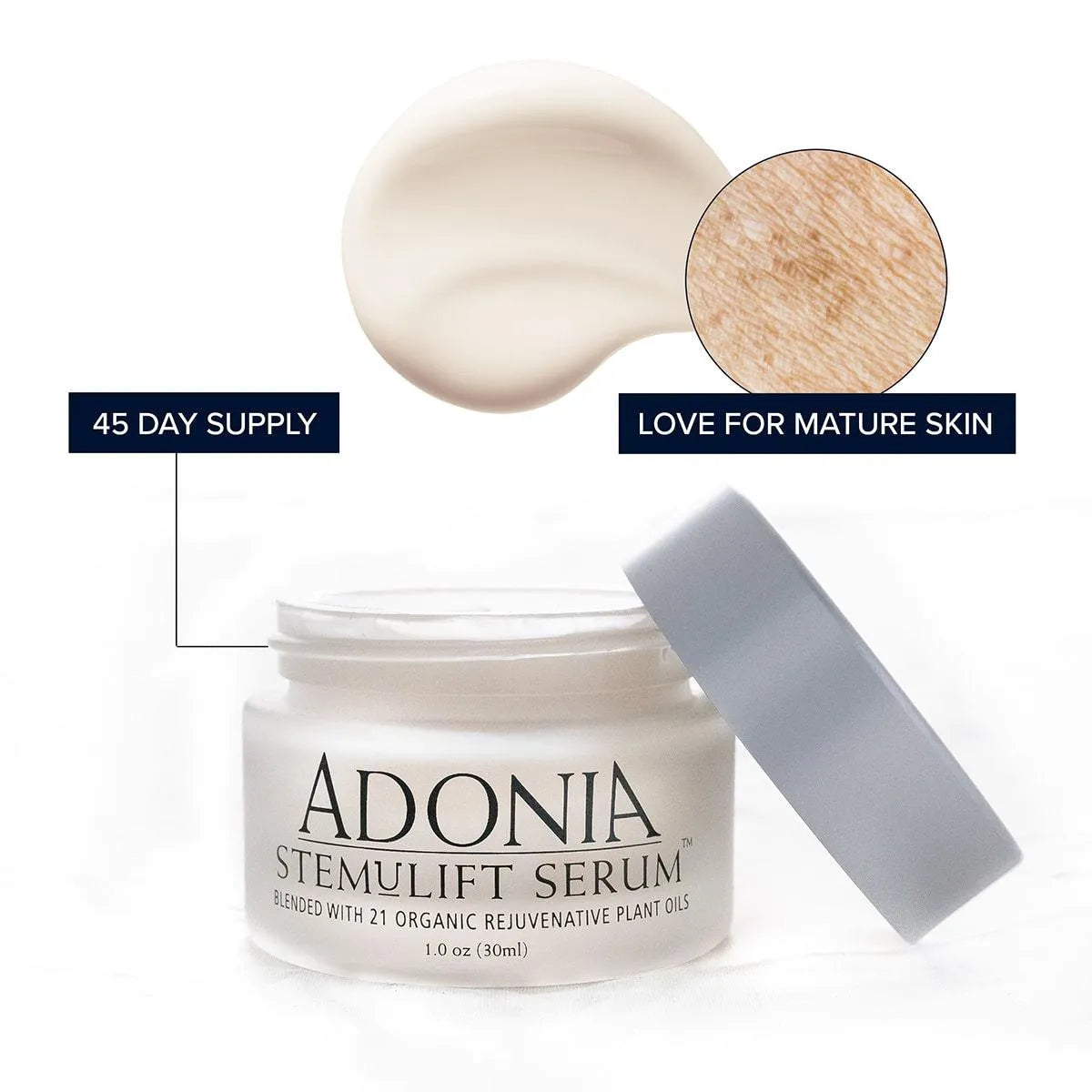Menopause is a transformative phase in a woman’s life, bringing a cascade of hormonal changes that affect everything from mood to metabolism. One of the most noticeable shifts occurs in the skin. Many women find that the skincare routine that worked perfectly in their 30s and 40s suddenly doesn’t deliver the same results. Understanding how menopause impacts your skin can help you adjust your skincare regimen to maintain a healthy, radiant complexion well into your 50s, 60s, and beyond.
The Impact of Menopause on Skin

Menopause typically begins in the late 40s or early 50s, marking the end of menstrual cycles. The primary driver behind menopausal skin changes is the decline in estrogen levels. Estrogen plays a crucial role in collagen production, moisture retention, and skin elasticity. As estrogen diminishes, several noticeable changes occur:
Loss of Collagen and Elasticity
Collagen is the structural protein responsible for keeping skin firm and plump. Studies suggest that women can lose up to 30% of their collagen in the first five years of menopause. This depletion results in sagging skin, fine lines, and wrinkles, particularly around the mouth and jawline.

Increased Dryness and Sensitivity
Reduced estrogen leads to decreased oil production, making the skin drier and more prone to irritation. Many women experience a rougher texture and an overall lack of suppleness.
Thinning Skin
The skin's barrier function weakens, making it more susceptible to damage from environmental aggressors like UV rays and pollution. This also means that minor cuts and bruises may take longer to heal.

Hyperpigmentation and Age Spots
Hormonal fluctuations can trigger an increase in melanin production, leading to age spots and uneven skin tone, particularly on the face, hands, and décolletage.
Increased Facial Hair and Acne
With declining estrogen and relatively higher androgen levels, some women develop unwanted facial hair along the chin and jawline. Others may experience menopausal acne, similar to hormonal breakouts seen during puberty.
How to Adapt Your Skincare Routine During and After Menopause
Given these changes, it’s crucial to update your skincare routine to address new concerns and maintain optimal skin health. Here’s how you can adjust your approach:
Prioritize Hydration

Since menopausal skin tends to be drier, a heavier-duty moisturizer is essential. Look for products containing:
- Hyaluronic Acid to attract and retain moisture.
- Ceramides to strengthen the skin barrier and prevent water loss.
- Glycerin and Squalane for deep hydration.
Switching to a richer night cream can also provide overnight nourishment and help counteract the dryness caused by hormonal shifts.
Focus on Collagen Support

To combat collagen loss, incorporate ingredients that help stimulate production:
- Retinol or Bakuchiol: These vitamin A derivatives boost cell turnover and stimulate collagen formation.
- Peptides: These amino acid chains support skin repair and improve elasticity.
- Vitamin C: A powerful antioxidant that helps with collagen synthesis and brightens the skin.
Gentle, Non-Stripping Cleansing

Harsh cleansers can exacerbate dryness and irritation. Opt for:
- Creamy or oil-based cleansers to maintain moisture levels.
- Micellar water for a gentle, non-stripping cleanse.
- pH-balanced formulas to preserve the skin barrier.
Strengthen the Skin Barrier

As skin thins and becomes more fragile, reinforcing its barrier function is crucial:
- Niacinamide: Helps to reduce inflammation, improve elasticity, and strengthen the skin.
- Fatty acids and botanical oils: Such as jojoba, rosehip, and argan oil, to replenish lost lipids.
- Colloidal oatmeal: To soothe irritation and reinforce hydration.
Sun Protection Becomes More Important Than Ever

Menopausal skin is more vulnerable to sun damage, making SPF a non-negotiable:
- Use broad-spectrum sunscreen (SPF 30 or higher) daily.
- Choose mineral sunscreens with zinc oxide or titanium dioxide to avoid irritation.
- Reapply every two hours if spending time outdoors.
Target Hyperpigmentation

If age spots and uneven skin tone become more prominent, consider:
- Alpha Arbutin: A gentle skin-brightening ingredient.
- Licorice Extract and Kojic Acid: To help fade dark spots.
- Exfoliating Acids (AHAs/BHAs): Glycolic or lactic acid can promote cell turnover and even out skin tone.
Address Menopausal Acne and Facial Hair

If breakouts persist or facial hair becomes an issue:
- Salicylic Acid: Helps to clear clogged pores without over-drying the skin.
- Azelaic Acid: Has antibacterial properties and reduces inflammation.
- Dermaplaning or gentle hair removal methods: Consider options like threading or laser hair removal for facial hair concerns.
Lifestyle Adjustments for Healthier Skin
While topical skincare plays a huge role, internal factors also impact skin health. Consider these lifestyle tips:
Stay Hydrated

Drink plenty of water and incorporate hydrating foods like cucumbers, watermelon, and leafy greens.
Support Skin with the Right Supplements
- Collagen Peptides: May help maintain skin elasticity and hydration.
- Omega-3 Fatty Acids: Found in fish oil and flaxseeds, these help to reduce inflammation and keep skin supple.
- Vitamin D and E: Support skin repair and combat oxidative stress.
Manage Stress and Sleep Well
Chronic stress can lead to increased cortisol levels, which break down collagen. Prioritize sleep, relaxation techniques, and gentle exercises like yoga or walking.
Maintain a Balanced Diet

Include skin-loving foods rich in antioxidants, such as berries, nuts, avocados, and green tea, to fight free radicals and keep skin glowing.
Final Thoughts
Menopause is a time of transition, but with the right skincare routine, it doesn’t have to mean giving up on a youthful, radiant complexion. By understanding how hormonal changes impact the skin and adjusting your skincare accordingly, you can maintain hydration, collagen levels, and overall skin health.
Think of this phase as an opportunity to refine your skincare regimen, focusing on nourishment, protection, and repair. Your skin may have changed, but with the right care, it can still look and feel its best!

